Advertisement
From baking soda to lemon juice, you probably have several home remedies in your fridge that can help with this fungal infection
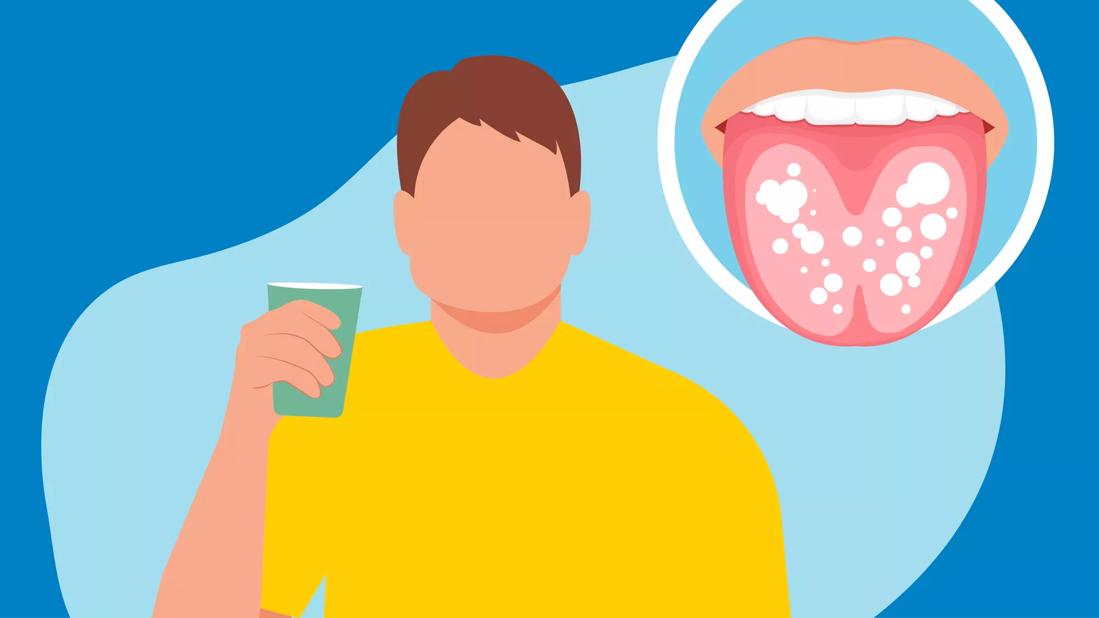
What’s that white stuff on your tongue? And why does your mouth feel “funny” — maybe a little bit like sandpaper? Well, my friend, you may have a case of oral thrush.
Advertisement
Cleveland Clinic is a non-profit academic medical center. Advertising on our site helps support our mission. We do not endorse non-Cleveland Clinic products or services. Policy
Thrush is a fungal infection that can grow in your mouth, throat and other parts of your body. It’s caused by the overgrowth of a type of fungus called Candida (also known as yeast). Mouth and throat thrush is called oropharyngeal candidiasis.
Thrush can affect anyone, but some people are more vulnerable than others.
“We typically see thrush in children, whose immune systems are developing, or older adults, whose immune systems are starting to decline,” says family medicine specialist Ryan Fisher, MD. “People with medical conditions that weaken their immune system or take medications that suppress it are also more susceptible.”
Dr. Fisher gives the example of people with asthma or chronic obstructive pulmonary disease (COPD) who use a corticosteroid inhaler. “They’re at risk if they don’t rinse their mouth after using their inhaler,” he explains.
You may also be vulnerable to oral thrush if you use dentures that don’t fit well or aren’t kept clean.
While thrush typically goes away on its own, there are home remedies you can use to help speed up recovery or alleviate pain. Dr. Fisher talks about which ones to try — and what to do if they don’t work.
Don’t start rummaging through your cabinets or refrigerator in search of a DIY treatment just yet!
Dr. Fisher first recommends using good oral hygiene — that means thorough brushing, flossing and tongue scraping — for three to four weeks to see if oral thrush resolves on its own. If that doesn’t do the trick, here are a few home remedies that may help.
Advertisement
With its antiseptic properties, salt can help soothe and cleanse your mouth. In fact, it’s a common home remedy for a burnt tongue!
Try dissolving 1/2 teaspoon of salt into a cup of warm water. Swish the salt-water rinse around your mouth for one or two minutes, then spit out the mixture.
Baking soda is a common ingredient in toothpaste for a reason. Yes, it has whitening properties, but it also has antibacterial properties, making it a go-to ingredient for removing plaque and combating gum issues like gingivitis.
Mix 1/2 teaspoon of baking soda (sodium bicarbonate) into a cup of warm water. Swish the solution around your mouth and then spit it out.
If you have oral thrush, the yeast in your mouth is out of balance. Eating yogurt can help restore that balance.
But you don’t want to eat just any yogurt. Look for unsweetened varieties that have probiotics or live and active cultures. Yogurt won’t kill the thrush bacteria, but studies suggest it will stop its growth. Bonus: Eating yogurt helps improve both your gut health and your immune system!
Preliminary research suggests that lemon juice can help with oral thrush because of its antiseptic and antifungal properties. But don’t apply lemon juice directly to lesions. It can cause burning and irritation.
If you want to try lemon juice, mix the juice of half a lemon in a cup of water. You can drink the mixture (it’s delicious!) or use it as a mouth rinse.
Advertisement
A 2020 systematic review article determined that curcumin, the compound found in turmeric, may help treat oral thrush thanks to its anti-inflammatory and antifungal properties. The review also suggests that curcumin could enhance the effects of the anti-fungal drug fluconazole in eliminating thrush. As with most home remedies we’re mentioning here, more research is needed to confirm that turmeric has the same impact on humans as it has in a test tube.
You can make a drink using 1/2 teaspoon of turmeric paste, a cup of water or milk and a pinch of black pepper. Heat on the stove until warm. As you drink the mixture, swish it around your mouth.
Thanks to the antifungal properties found in apple cider vinegar, a 2014 study suggests that it may help treat oral thrush caused by dentures even better than the antifungal drug nystatin.
But avoid using apple cider vinegar alone, as it can cause burning in your mouth. Instead, combine 1 teaspoon of apple cider vinegar with a cup of water. Swish around your mouth for a minute, then spit it out.
If you like the taste of apple cider vinegar and don’t mind a little fizz, you’re in luck! Sparkling apple cider vinegar drinks have become popular and are often available in the refrigerated section of your local grocery store. Drinking these beverages isn’t the same as doing a proper rinse. Instead, think of your refreshment break as a tasty add-on.
Oregano oil, typically used in cooking, may help treat thrush. A 2001 study still cited today found that its antimicrobial and antifungal properties were highly effective against Candida. Those findings have been reproduced several times over in the decades since — including in 2023 in The Archives of Oral Biology. But don’t get too excited: While the studies are promising, these experiments have mainly been conducted on yeast in a test tube, not on the tongues of actual people.
Dr. Fisher recommends against using oregano oil by itself, either orally or topically. After all, if it’s as effective an antibiotic as some research suggests, using too much too often could kill off the beneficial bacteria you need to stay healthy.
Dr. Fisher suggests using a mixture made by adding a few drops of oregano oil to a tablespoon of water. Swish the mixture around in your mouth and spit it out after a few minutes.
Advertisement
Before taking oregano oil as a supplement, Dr. Fisher says it is important to know that swallowing it may negatively affect your body’s ability to absorb copper, iron and zinc. Additionally, it may lower blood sugar levels. “If you are planning on undergoing surgery, it’s best to avoid taking oregano oil for at least two weeks before the procedure, as it can increase the risk of bleeding,” he says.
Always talk to a doctor before starting any supplement, especially if you’re currently taking any medication or have a medical condition.
You may have come across clove oil at your dentist’s office. The oil is used as an antiseptic and pain reliever.
A widely cited 2005 study suggests that clove oil may be as effective at treating oral thrush as an antiviral drug called nystatin, but more research is needed to confirm those findings.
You can make a clove oil rinse if you want to use clove oil for thrush. To make a clove oil rinse, steep ground cloves in hot water for five minutes, then strain. Swish the mixture around your mouth and then spit it out.
It’s important to note that clove oil is not safe for children due to the risk of harmful side effects like seizures, liver damage and fluid imbalances. Dr. Fisher says it can also affect blood sugar levels and slow blood clotting. So, if you have a bleeding disorder or surgery scheduled, avoid using clove oil.
Thrush often goes away once you stop whatever’s causing the problem.
“For example, if antibiotics or steroid treatments caused your infection, just waiting a few weeks may give the body time to return to a natural yeast balance,” says Dr. Fisher.
If you’ve been using home remedies to treat yourself, but the white stuff is still there, it’s time to call your primary care provider or — if you have one — your ENT. They’ll want to look at your mouth to rule out other causes, including:
Your healthcare provider will order an antifungal rinse if it’s oral thrush. You’ll swish, swish, swish for 10 to 14 days, which will help your body regain its natural yeast balance.
If your symptoms still don’t improve, or you have recurrent episodes of thrush, visit an ear, nose and throat (ENT) specialist (otolaryngologist) to discuss the diagnosis and treatment.
Advertisement
Learn more about our editorial process.
Advertisement

Stress and unhealthy habits can lead to more colds, but taking some precautions may help you stay well

Non-cancerous ulcers usually heal within a few days or weeks — if it’s sticking around, it’s time to get it checked
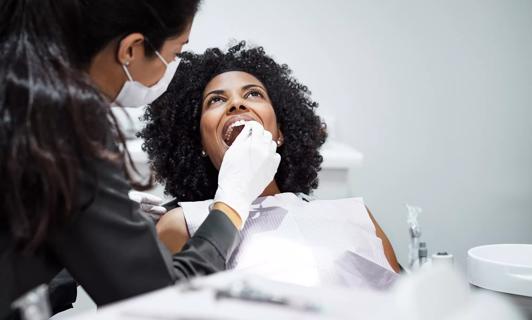
Keep the nail file out of your mouth and leave any tooth shaving up to your dentist

Help and encourage them to brush and floss regularly, limit sugary foods and get routine dental checkups
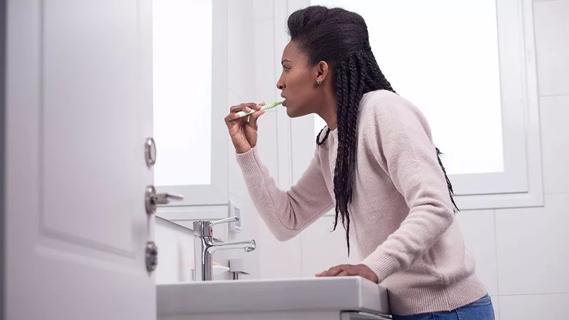
Estrogen and progesterone changes throughout the month — and throughout your life — can make you more prone to dental health concerns

Benefits typically include bi-annual screenings and lower payments on procedures like fillings and crowns
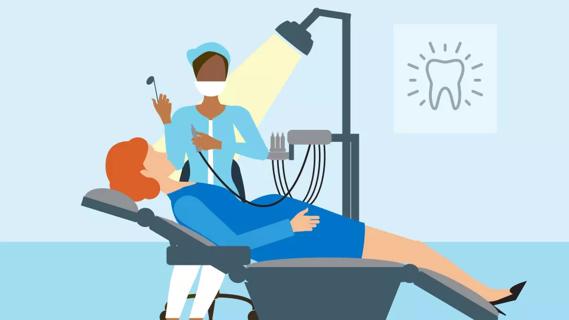
Dental care is not only safe during pregnancy, but it’s also highly recommended
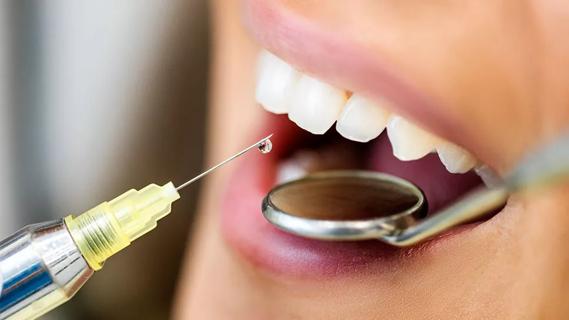
The numbness and tingling should wear off in about two hours

Focus on your body’s metabolic set point by eating healthy foods, making exercise a part of your routine and reducing stress

PFAS chemicals may make life easier — but they aren’t always so easy on the human body

While there’s little risk in trying this hair care treatment, there isn’t much science to back up the claims